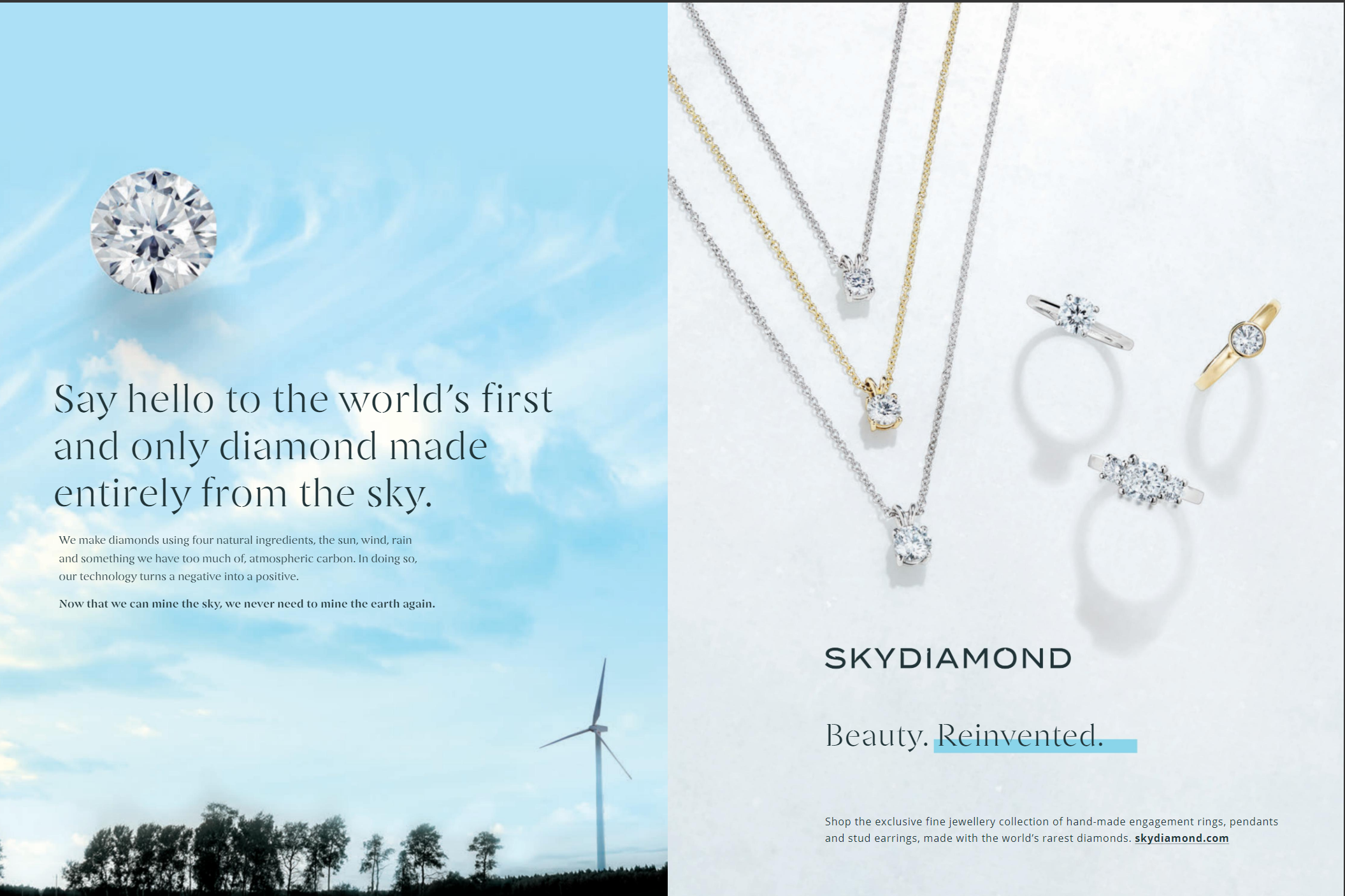Ads for British diamond firm banned for misleading ‘real’ claims
Ads for Skydiamond did not make clear to consumers that the gems were synthetic, the Advertising Standards Authority ruled.

Your support helps us to tell the story
From reproductive rights to climate change to Big Tech, The Independent is on the ground when the story is developing. Whether it's investigating the financials of Elon Musk's pro-Trump PAC or producing our latest documentary, 'The A Word', which shines a light on the American women fighting for reproductive rights, we know how important it is to parse out the facts from the messaging.
At such a critical moment in US history, we need reporters on the ground. Your donation allows us to keep sending journalists to speak to both sides of the story.
The Independent is trusted by Americans across the entire political spectrum. And unlike many other quality news outlets, we choose not to lock Americans out of our reporting and analysis with paywalls. We believe quality journalism should be available to everyone, paid for by those who can afford it.
Your support makes all the difference.Ads for a British diamond manufacturer have been banned for misleading consumers by not making it clear the gems are synthetic.
Press and Instagram ads for Skydiamond in February last year, as well as its website, featured the headline, “Say hello to the world’s first and only diamond made entirely from the sky.”
Smaller text underneath stated: “We make diamonds using four natural ingredients, the sun, wind, rain and something we have too much of, atmospheric carbon. In doing so, our technology turns a negative into a positive. Now that we can mine the sky, we never need to mine the earth again.”
A “Frequently Asked Questions” page included the question “Are Skydiamonds real diamonds?” and the answer: “Each Skydiamond is a perfectly formed real diamond.”
The Natural Diamond Council, who understood the products were laboratory-created diamonds, complained that the claims “Skydiamonds”, “diamonds”, “real diamonds” and “diamonds made entirely from the sky” in the ads were misleading.
The Sky Mining Company, trading as Skydiamond, believed that the ads made clear that their diamonds were not mined from the earth and as such were not naturally occurring diamonds, referred to as natural diamonds.
They told the Advertising Standards Authority (ASA) that they did not believe that the absence of the words “synthetic”, “laboratory-grown” or “laboratory-created” would inevitably lead an average consumer to be misled about their diamonds.
On the contrary, they believed that the extent of the qualifying information, graphics and visuals made readily available could only lead an average consumer to conclude that their diamonds were not earth-mined, as they intended.
The firm said a Skydiamond was a diamond, “chemically, structurally and optically”, and had exactly the same composition and physical properties of a natural diamond.
The ASA said consumers would understand the word “diamond” in isolation to mean a mineral consisting of crystallised carbon that was naturally occurring.
We understood that although synthetic diamonds had the same chemical and physical properties as mined diamonds, there were differences in their future value
It said: “We considered that while some consumers may have been aware that synthetic diamonds could be manufactured or created in a laboratory, many would not.”
It added: “We understood that although synthetic diamonds had the same chemical and physical properties as mined diamonds, there were differences in their future value.
“We also considered that, whether a gemstone was natural or synthetic would be a key consideration for many consumers and was therefore material information.
“We therefore considered that ads for synthetic diamonds needed to make clear the nature of the product in order to avoid misleading consumers.”
The ASA concluded: “Because the ads did not make clear that Skydiamond diamonds were synthetic, we concluded that the claims ‘diamonds’, ‘diamonds made entirely from the sky’ and ‘Skydiamond’ were misleading.
“The ads must not appear again in the form complained about.”
The watchdog added: “We also told them not to use the claim ‘real diamonds’ to describe synthetic diamonds.”